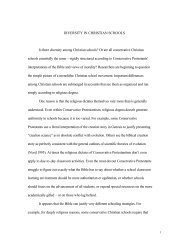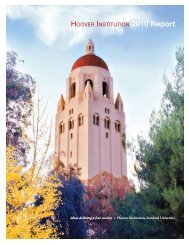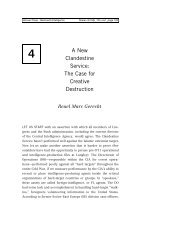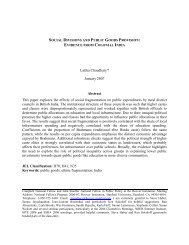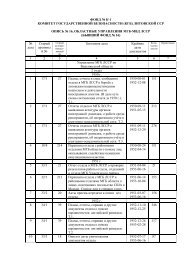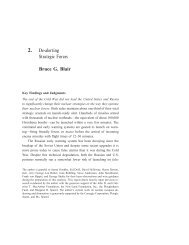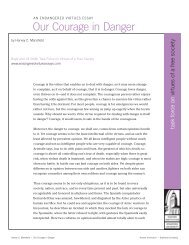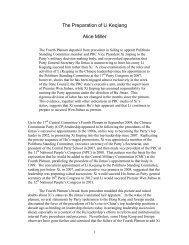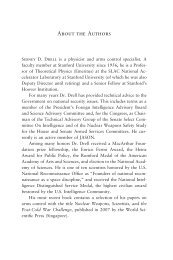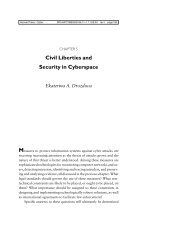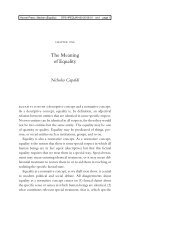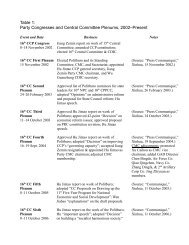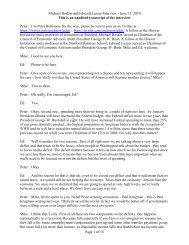On Really Existing Anti-Americanism - Hoover Institution
On Really Existing Anti-Americanism - Hoover Institution
On Really Existing Anti-Americanism - Hoover Institution
Create successful ePaper yourself
Turn your PDF publications into a flip-book with our unique Google optimized e-Paper software.
<strong>Hoover</strong> Classics : Berman hcberman ch3 Mp_79 rev0 page 79<br />
<strong>Really</strong> <strong>Existing</strong> <strong>Anti</strong>-<strong>Americanism</strong><br />
79<br />
plausible opponent to Nazi totalitarianism than did the<br />
Communism of Stalinist Russia. In two passages in his<br />
journals, he managed to work his way out of the politically<br />
correct Stalinist antiwar stance, the toleration for<br />
repressive peace, and came to advocate the democratic<br />
war. Despite his standard leftist starting points—anticapitalist,<br />
antibourgeois, antinationalist, and antiwar—he<br />
was ultimately able to comprehend how a willingness to<br />
wage war, to celebrate national identity, and to cultivate<br />
patriotism were desirable, at least in the context of patriotism<br />
within a democracy and a war against fascism.<br />
To do so, to recognize where the best hope lay for fighting<br />
Hitler, required a profound shift in his political instinct<br />
to reject war as such. He had to venture out of<br />
the ideological confines of Communism and its abstract<br />
idealism to embrace instead the vision of a heroic engagement<br />
in the drama of struggle. In order to fight for<br />
freedom, he had to escape from dogma. Brecht’s successful,<br />
albeit brief, political opening provides a standard<br />
with which we can measure the ideological character of<br />
anti-<strong>Americanism</strong>.<br />
In Scandinavian exile from Hitler’s Germany,<br />
Brecht watched Europe collapse: “france fell at the maginot<br />
line, that underground 5-storey hotel, what an embodiment<br />
of parasitical french capital investment!”<br />
(journal entry of June 28, 1940). 5 After the French capitulation,<br />
would England fight? Brecht had his doubts,<br />
in the context of the Hitler-Stalin pact and the Com-<br />
5. Bertolt Brecht, Journals 1934–1955, trans. Hugh Rorrison (New<br />
York: Routledge, 1996), 71.



